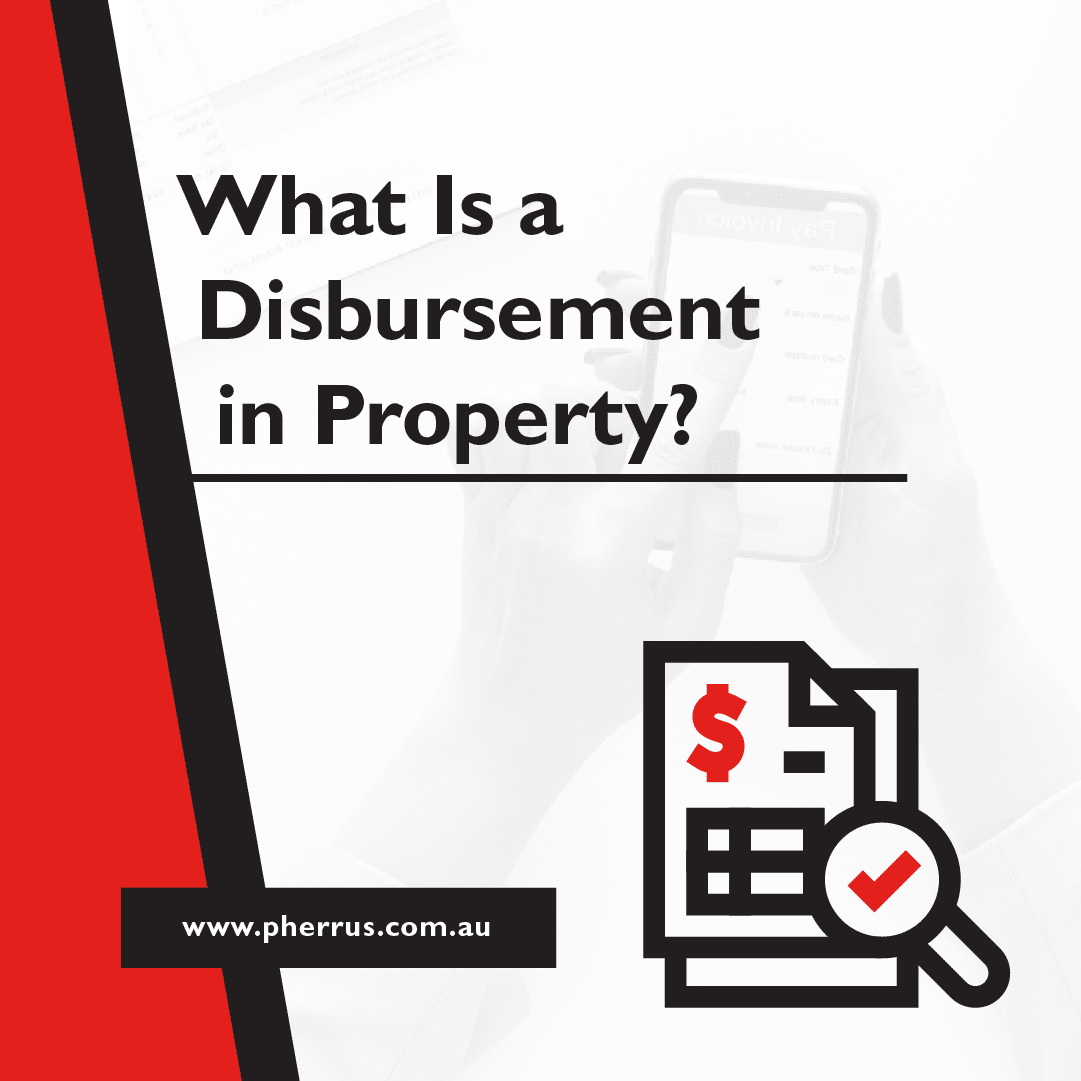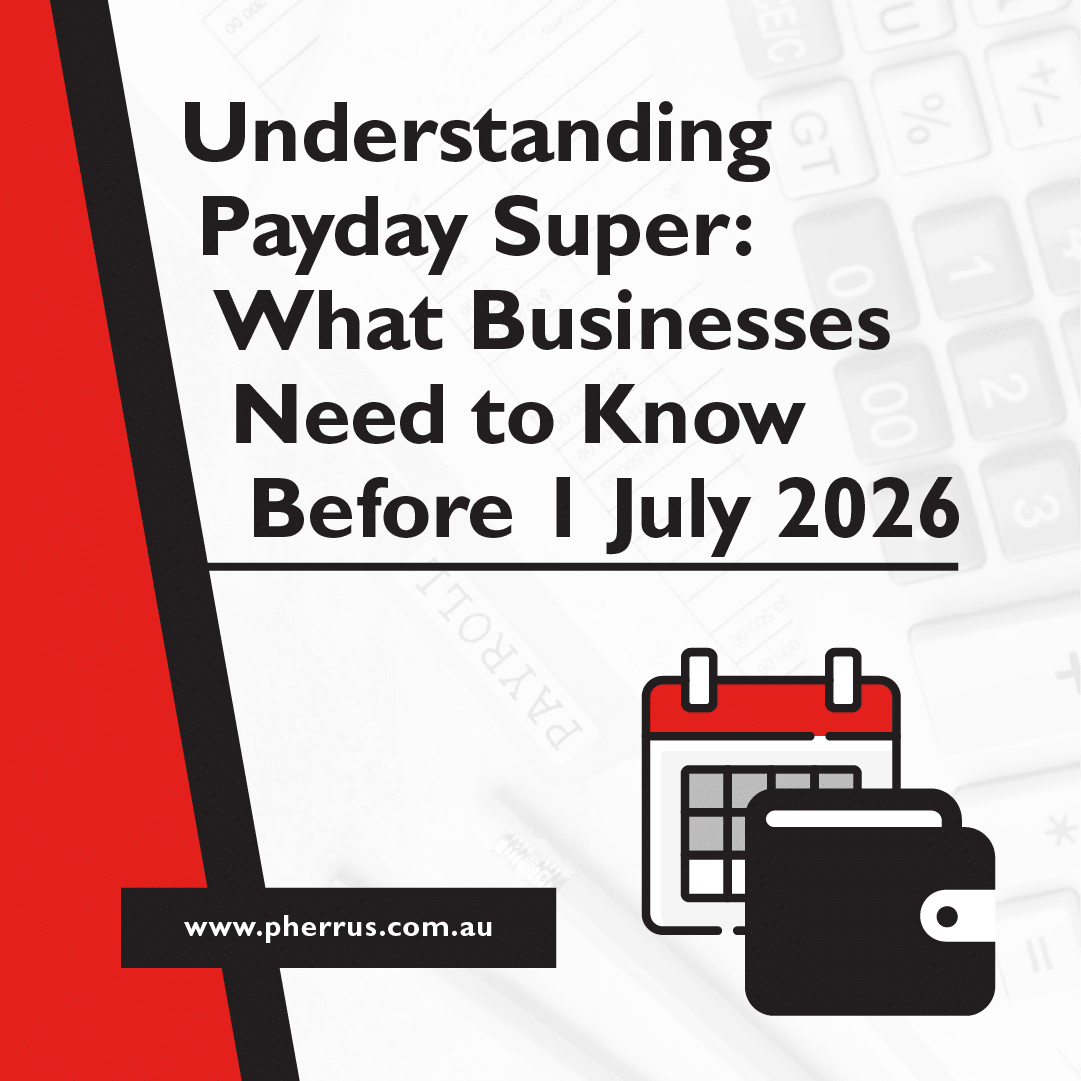When you’re buying, selling, or managing property, you have to deal with a lot of numbers.
One set of numbers that often causes confusion is disbursements.
These aren’t hidden fees or surprise costs.
They’re a normal part of the property transaction process.
But if you don’t know what they are, you could end up disputing legitimate charges on your settlement statement with your solicitor or conveyancer.
In some cases, confusion over disbursements can delay settlement or cause friction between parties.
This quick guide answers the question, “What is a disbursement?” to help you understand what you’re paying for, avoid unnecessary disputes, and stay in control during your property transaction.
We’ll cover the basics in simple terms, but please keep in mind that this is general information only, not legal or financial advice.
Always speak with a professional for guidance on your specific situation.
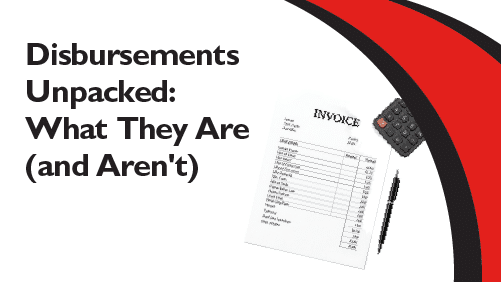
Disbursements Unpacked: What They Are (and Aren’t)
A disbursement is an out-of-pocket cost that your lawyer or conveyancer pays on your behalf as part of the property transaction.
These expenses will appear on your final invoice for reimbursement by you.
Your conveyancer or solicitor should clearly itemise each disbursement.
If any third-party costs on the invoice are marked up, that added margin is typically treated as part of their fee, not a disbursement.
It’s important to understand the difference between disbursements and professional fees.
Disbursements are third-party costs reimbursed by you.
Professional fees, on the other hand, cover the service provider’s time, advice, and expertise.
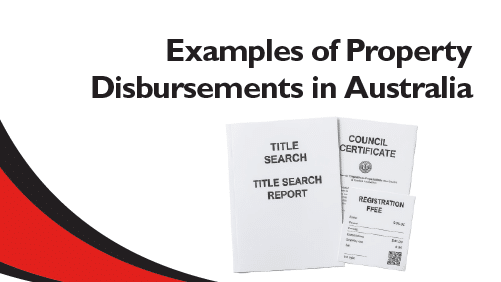
Examples of Property Disbursements in Australia
Paid by Property Buyers
- Title Searches: Searches through NSW Land Registry Services (LRS) to confirm legal ownership, check for easements, and identify any restrictions on the property.
- Property Certificates: Ordered from councils and water authorities to confirm zoning, drainage, and rate status.
- Registration Fees: Government fees to register documents with NSW LRS, such as transfers of ownership or mortgage discharges.
- Settlement Agent or PEXA (Property Exchange Australia) Fees: Covers the electronic lodgement of documents and settlement of funds through the PEXA platform.
- Verification of Identity (VOI) Checks: Required by law to confirm your identity. Often done through an online provider or at a post office.
Paid by Property Sellers
- Discharge of Mortgage Registration Fee: If the seller is paying out a mortgage, there’s a government fee to remove the mortgage from the title.
- VOI Checks (for Sellers): Sellers also need to verify their identity, usually through the same process as buyers.
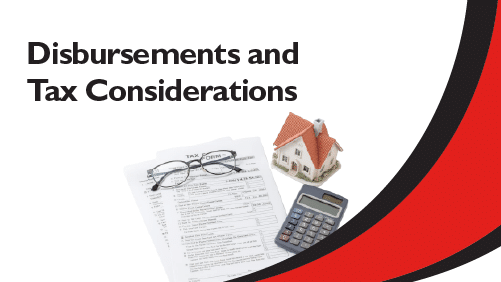
Disbursements and Tax Considerations
Whether you’re buying an investment property or a future home, costs like title searches, property certificates, and registration fees are usually added to the property’s cost base.
If you sell the property later and it’s not exempt from Capital Gains Tax (CGT), adding these costs to your cost base can help reduce the CGT you must pay.
The capital gain you may be taxed on is the difference between what you sold the property for and its cost base—what it cost you to buy and hold the property, including eligible costs like disbursements.
When buying an investment property, your conveyancer may also pass on costs like water or council certificates.
These types of expenses may be tax-deductible immediately, depending on how the property is used and what the expense is for.
If you’re selling, disbursements like mortgage discharge registration fees aren’t usually tax-deductible, but you may be able to add them to your cost base for CGT purposes.
Disbursements and GST Considerations
Your solicitor or conveyancer won’t usually charge GST on disbursements.
However, if the original provider (like PEXA or a council) charged GST, and you’re registered for GST, you might be able to claim that GST back.
Quick Checklist: What to Track
Good record keeping makes it easier to track which expenses may be deductible, included in your cost base, or eligible for GST input tax credits.
Here’s a quick checklist of what to track:
- Disbursement invoices from your lawyer or conveyancer
- Costs related to buying or selling (some may affect CGT later)
- Investment-related expenses that may be tax-deductible
- GST on third-party charges (like PEXA or council fees)
If you’re unsure what to claim at tax time, it’s best to seek advice from your accountant.

Expert Help with Property Costs | Contact Pherrus
What is a disbursement?
A behind-the-scenes cost that pops up on your bill, keeps the wheels turning, and then waits to be reimbursed!
At tax time, even small costs matter.
Tracking disbursements and other property expenses can be tricky, especially when making the most of CGT rules, deductions, and GST claims.
You need the expertise of the Pherrus team.
We specialise in helping Australian property owners and investors manage their finances through accurate bookkeeping and strategic tax planning.
Fill out our online form or call (02) 9099 9109 to book your free consultation today.

FAQ
What Are Disbursements When Buying a House?
Disbursements are third-party costs your solicitor or conveyancer pays on your behalf during the buying process: title searches, property certificates, registration fees, VOI checks, and PEXA settlement charges.
They add these to your final bill for reimbursement.
What Are Disbursements When Selling a House?
When selling, disbursements usually include the cost of discharging your mortgage and identity verification.
Your legal representative pays these costs and passes them to you at settlement for reimbursement.


